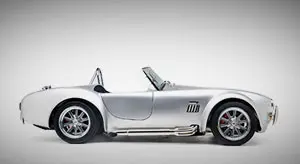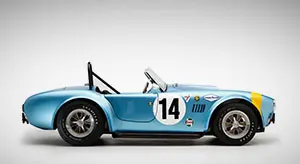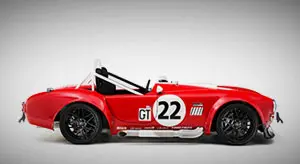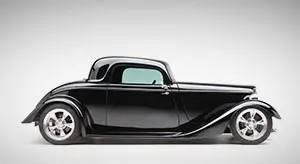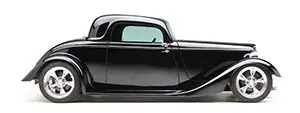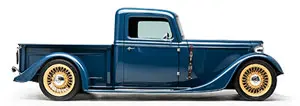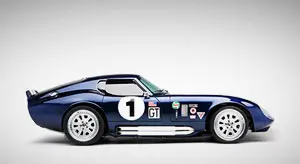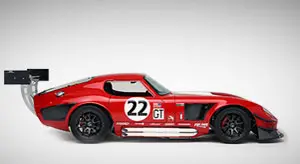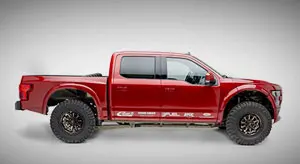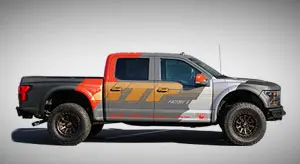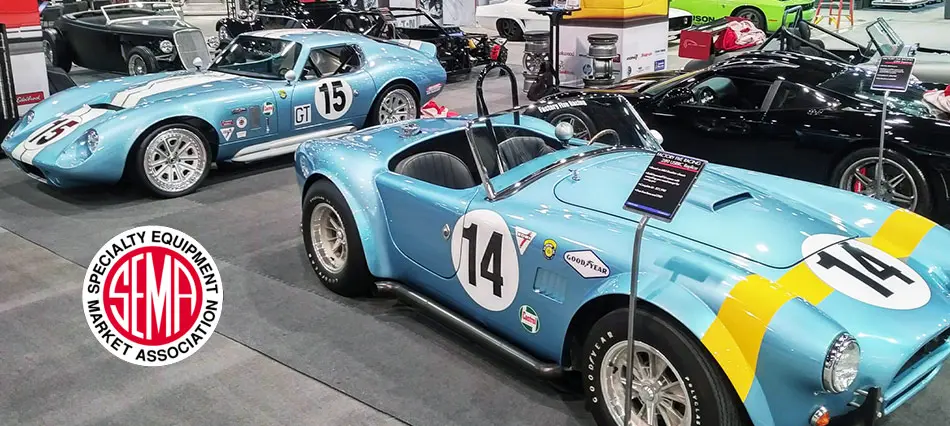
Our good friends at SEMA (the Specialty Equipment Market Association) have reluctantly filed a petition in federal court to require the government to allow replica car manufacturers to immediately begin production under a 2015 law referred to as the Low Volume Manufacturers Law. Read the press release below:
SEMA Sues U.S. Department of Transportation for Failing to Implement Replica Car Law
DIAMOND BAR, CA (October 17, 2019) – The Specialty Equipment Market Association (SEMA) filed a petition in federal appellate court to require the government to allow replica car manufacturers to immediately begin production. Under a 2015 law—the Fixing America’s Surface Transportation Act (FAST Act)—low volume automakers may sell up to 325 replica cars each year that resemble production vehicles manufactured at least 25 years ago. The FAST Act set a deadline of December 4, 2016 for the U.S. Department of Transportation’s National Highway Traffic Safety Administration (NHTSA) to issue any necessary regulations to implement the law. The agency has yet to take any action.
Prior to enactment of the FAST Act, the U.S. had just one system for regulating automobiles, which was established in the 1960s and designed for companies that mass-produce millions of vehicles. The lack of regulatory flexibility prevented small businesses from manufacturing turn-key vehicles. Eager to produce replica vehicles under the new law, many companies made capital investments and took customer orders on the assumption that sales could begin in late 2016. However, NHTSA has failed to issue regulations or undertake any other action allowing the small automakers to produce and sell vehicles as permitted by law.
“SEMA warned NHTSA in 2018 that it would file suit if companies could not begin production of turnkey cars as authorized by the FAST Act,” said SEMA President and CEO Christopher J. Kersting. “SEMA has made every effort to work collaboratively with NHTSA for over three and a half years, although the agency has taken no action to implement the replica car law. Consequently, companies have not hired workers, businesses have lost money, and consumers have been denied their rights to purchase replica cars.”
Vehicles produced under the FAST Act will be current model year clean cars. The U.S. Environmental Protection Agency and the California Air Resources Board have developed guidelines and regulations to confirm that the engine packages to be installed will meet current emissions standards.
The replica car provision was designed to be easy for NHTSA to implement, as it is an extension of the common-sense approach to overseeing kit car production that the agency has employed for decades. While the FAST Act requires NHTSA to “issue such regulations as may be necessary” to implement the law, the agency also has other options such as issuing a guidance document that will allow production to begin immediately. SEMA has asked the court to compel NHTSA to take action.
About SEMA
SEMA, the Specialty Equipment Market Association founded in 1963, represents the $44.6 billion specialty automotive industry. The industry provides appearance, performance, comfort, convenience and technology products for passenger and recreational vehicles. Association
resources include market research, legislative advocacy, training and product development support, as well as leading trade shows such as the SEMA Show in Las Vegas, NV, and the Performance Racing Industry (PRI) Trade Show in Indianapolis, IN. For more information, visit www.sema.org, www.semashow.com, or www.performanceracing.com.
Background
Starting around 2011, I began working with other replica manufacturers and the crew from SEMA to draft small volume legislation that would allow modern emissions legal and safely built replicas to be made in small volumes by the companies that designed and engineered them. Way back in the 1960s, the National Highway Traffic Safety Administration (NHTSA) created a regulatory structure for companies that produced millions of cars, but never addressed the important contributions of smaller, innovative manufacturers. While NHTSA has always had authority to create a second regulatory scheme for low volume manufacturers but had never done so.
SEMA and the industry worked with Congress to create the replica car program as part of the 2015 highway bill. The program made it possible for small volume automakers to sell up to 325 replica cars in the U.S. each year and up to 5,000 globally, per manufacturer. These are vehicles that appear to be 25 years old or older such as 1930s hot rods, ’50s street rods, and ’60s Cobras.
The law was passed in 2015, and NHTSA had one year under the statute, until Dec. 4, 2016, to issue any necessary regulation to implement the law. As of now, NHTSA has missed the deadline by almost 3 years! They also missed deadlines given to members of Congress for publishing a proposed rule: April 2018, May 2018, June 2018, Fall 2018, Spring 2019. The irony is that no regulation is necessary! The law is very detailed so all NHTSA has to do is issue a guidance document that will provide a way for low volume manufacturers to register.
The other part of the current low volume law involves the U.S. Environmental Protection Agency (EPA), which has already issued guidelines and regulations for vehicle engine packages that will meet current emissions standards.
Everyone who has worked on this legislation and all of the small volume manufacturers and suppliers have been patiently waiting, and this legal action is probably a good idea in to get some action on a law that is already on the books.
The current administration has an opportunity to help small auto manufacturers produce replica vehicles and implementing this new law promises to create auto sector jobs, eliminate red-tape, and offer consumers around the world the chance to experience replica cars that capture our unique American heritage.

